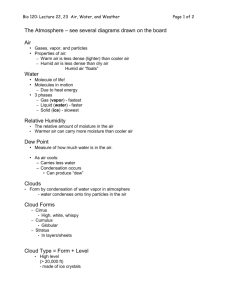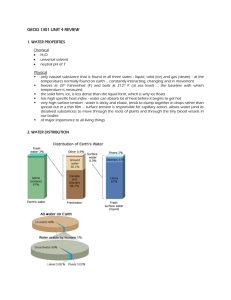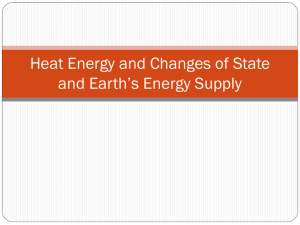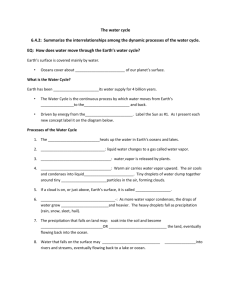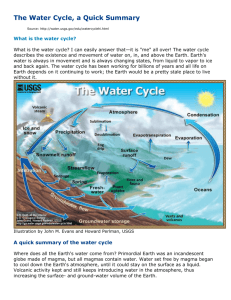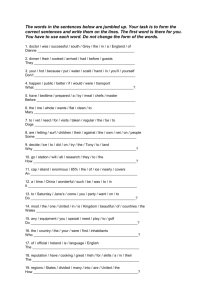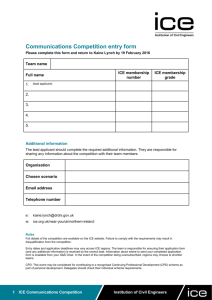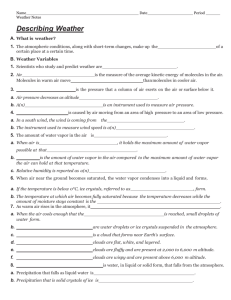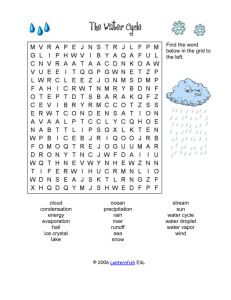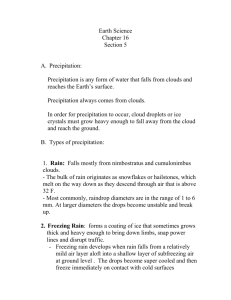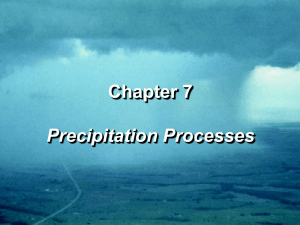Precipitation Classification Chart answer key
advertisement
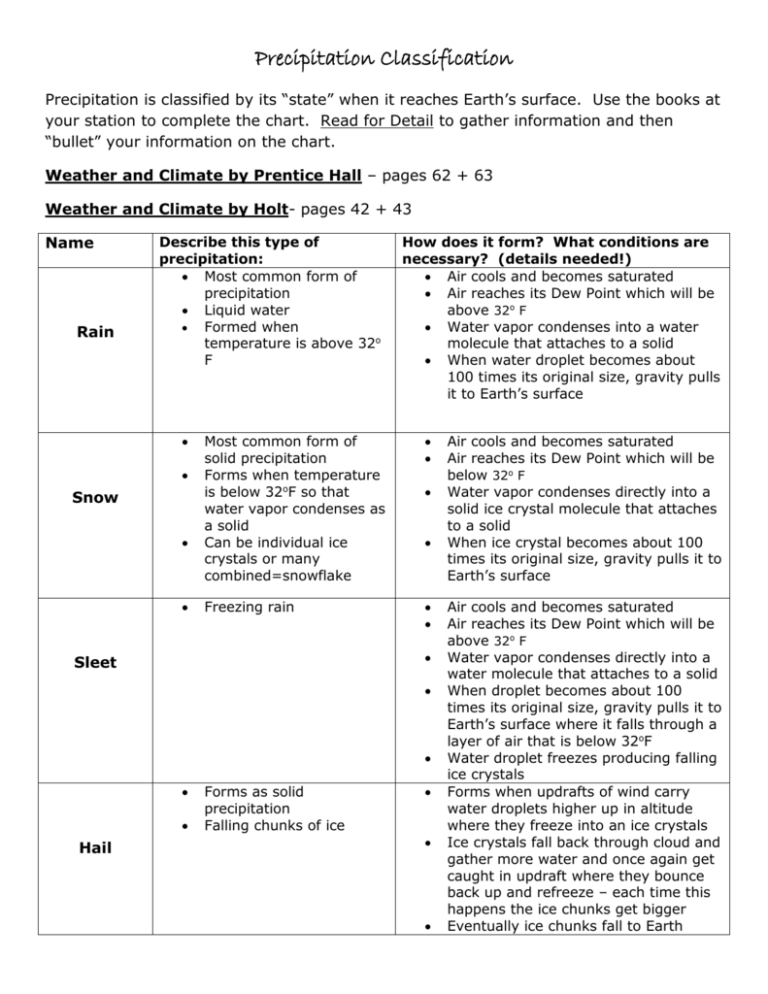
Precipitation Classification Precipitation is classified by its “state” when it reaches Earth’s surface. Use the books at your station to complete the chart. Read for Detail to gather information and then “bullet” your information on the chart. Weather and Climate by Prentice Hall – pages 62 + 63 Weather and Climate by Holt- pages 42 + 43 Name Rain Describe this type of precipitation: Most common form of precipitation Liquid water Formed when temperature is above 32o F Snow How does it form? What conditions are necessary? (details needed!) Air cools and becomes saturated Air reaches its Dew Point which will be above 32o F Water vapor condenses into a water molecule that attaches to a solid When water droplet becomes about 100 times its original size, gravity pulls it to Earth’s surface Most common form of solid precipitation Forms when temperature is below 32oF so that water vapor condenses as a solid Can be individual ice crystals or many combined=snowflake Freezing rain Sleet Hail Forms as solid precipitation Falling chunks of ice Air cools and becomes saturated Air reaches its Dew Point which will be below 32o F Water vapor condenses directly into a solid ice crystal molecule that attaches to a solid When ice crystal becomes about 100 times its original size, gravity pulls it to Earth’s surface Air cools and becomes saturated Air reaches its Dew Point which will be above 32o F Water vapor condenses directly into a water molecule that attaches to a solid When droplet becomes about 100 times its original size, gravity pulls it to Earth’s surface where it falls through a layer of air that is below 32oF Water droplet freezes producing falling ice crystals Forms when updrafts of wind carry water droplets higher up in altitude where they freeze into an ice crystals Ice crystals fall back through cloud and gather more water and once again get caught in updraft where they bounce back up and refreeze – each time this happens the ice chunks get bigger Eventually ice chunks fall to Earth
